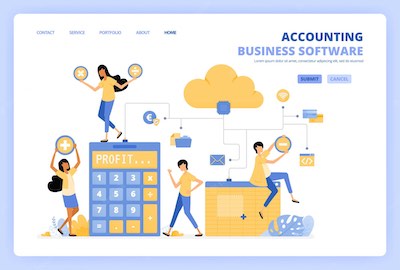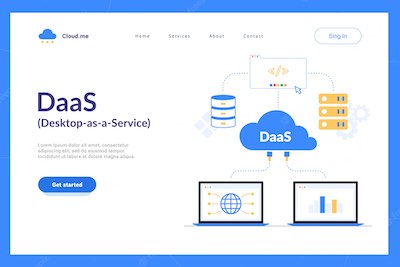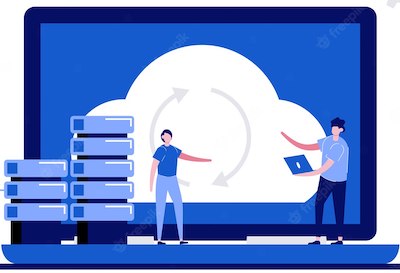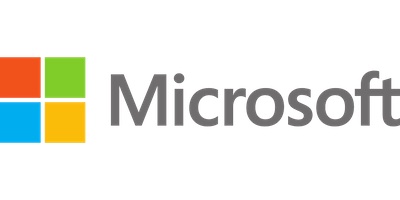 As technology advances, more and more businesses and individuals are turning to cloud services to store, manage, and access their data. But what exactly is the cloud, and how can it benefit you? In this article, we'll provide a comprehensive guide to cloud services, covering everything from the basics to the benefits of using the cloud.
As technology advances, more and more businesses and individuals are turning to cloud services to store, manage, and access their data. But what exactly is the cloud, and how can it benefit you? In this article, we'll provide a comprehensive guide to cloud services, covering everything from the basics to the benefits of using the cloud.
What is the Cloud?
In simple terms, the cloud refers to a network of servers that are located remotely and accessed via the internet. Rather than storing data on a local hard drive, the data is stored on the servers in the cloud. This allows users to access their data from anywhere, as long as they have an internet connection.
There are many different types of cloud services, each with its own advantages and disadvantages. Some of the most common types include:
- Infrastructure as a Service (IaaS): This type of cloud service provides users with virtualized computing resources, such as servers, storage, and networking. Users can scale their resources up or down as needed, and only pay for what they use.
- Platform as a Service (PaaS): PaaS provides a platform for developers to build, deploy, and manage applications. This type of service typically includes tools for developing and testing applications, as well as a runtime environment for deploying them.
- Software as a Service (SaaS): SaaS provides users with access to software applications over the internet. Rather than installing the software on their own computer, users can access it via a web browser or app. Examples of SaaS include email services like Gmail, productivity suites like Microsoft Office 365, and project management tools like Asana.
How Does the Cloud Work?
At its most basic level, the cloud works by allowing users to access resources that are stored remotely on servers. When a user accesses a cloud-based application or service, the request is sent to the cloud server, which processes the request and sends the response back to the user.
One of the key advantages of cloud computing is scalability. With traditional on-premises solutions, businesses had to purchase and maintain their own hardware and software, which could be expensive and time-consuming. With the cloud, however, businesses can quickly and easily scale their resources up or down as needed, without having to worry about purchasing new hardware or software.
Another advantage of the cloud is cost-effectiveness. Because users only pay for what they use, businesses can save money by only paying for the resources they need, rather than investing in expensive hardware and software that may not be fully utilized.
Benefits of Cloud Services
There are many benefits to using cloud services, including:
- Flexibility: Cloud services can be accessed from anywhere, at any time, as long as there is an internet connection. This makes it easy for businesses to support remote workers, as well as to collaborate with team members who are located in different parts of the world.
- Scalability: As mentioned earlier, the cloud allows businesses to quickly and easily scale their resources up or down as needed. This makes it easy to accommodate growth or changes in demand, without having to purchase and maintain new hardware or software.
- Cost-effectiveness: Because businesses only pay for what they use, cloud services can be more cost-effective than traditional on-premises solutions. This is particularly true for small businesses that may not have the resources to invest in expensive hardware and software.
- Security: While security concerns are often cited as a potential downside of cloud computing, many cloud service providers have implemented robust security measures to protect their users' data. In many cases, these security measures are more robust than those implemented by individual businesses.
- Disaster recovery: Because data is stored remotely in the cloud, it is often more resilient to disasters such as fires, floods, and other natural disasters. This can make it easier for businesses to recover from disasters and ensure that their critical data is not lost.
- Increased collaboration: Cloud services make it easy for team members to collaborate on projects, even if they are located in different parts of the world. For example, team members can access and edit the same document in real-time, rather than having to send the document back and forth via email.
Choosing the Right Cloud Service
With so many different types of cloud services available, it can be challenging to choose the right one for your business. Here are some factors to consider when selecting a cloud service:
- Scalability: Does the cloud service allow you to easily scale your resources up or down as needed?
- Security: What security measures does the cloud service provider have in place to protect your data?
- Cost: Is the cloud service cost-effective for your business, or will it end up being more expensive than traditional on-premises solutions?
- Reliability: Can you rely on the cloud service provider to keep your data secure and accessible at all times?
- Support: What level of support does the cloud service provider offer, and how responsive are they to customer needs?
Popular Cloud Services
There are many popular cloud services available today, each with its own unique features and benefits. Here are a few examples:
- Amazon Web Services (AWS): AWS is a comprehensive cloud computing platform that offers a wide range of services, including computing, storage, and databases. It is known for its scalability and flexibility, making it a popular choice for businesses of all sizes.
- Microsoft Azure: Azure is a cloud computing platform that offers a range of services, including computing, storage, and databases. It is particularly well-suited for businesses that use Microsoft products, as it integrates seamlessly with Microsoft Office and other Microsoft services.
- Google Cloud Platform (GCP): GCP is a cloud computing platform that offers a wide range of services, including computing, storage, and databases. It is known for its flexibility and ease of use, making it a popular choice for businesses that are new to the cloud.
- Dropbox: Dropbox is a cloud-based file storage and sharing service that allows users to access their files from anywhere, on any device. It is particularly well-suited for individual users and small businesses that need a simple and easy-to-use file sharing solution.
Conclusion
Cloud services are an increasingly popular choice for businesses and individuals alike, thanks to their flexibility, scalability, and cost-effectiveness. With so many different types of cloud services available, it's important to choose the right one for your business based on factors like scalability, security, cost, reliability, and support. By taking the time to research your options and select the right cloud service for your needs, you can enjoy the benefits of the cloud while keeping your data secure and accessible at all times.














